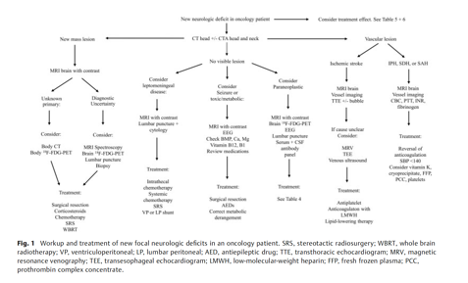1/
Back from #AANAM and missing the learning?
Enter #ContinuumCase
A 75-yo👩 presents to clinic.
- 1 month ago: monocular blurred vision in L👁️
- C U/S: 70% to 80% ICA stenosis
- On ASA 81 & Atorva 20mg; LDL 132 mg/dL b/f lipid therapy
How do you proceed?
[not her MRA]
Back from #AANAM and missing the learning?
Enter #ContinuumCase
A 75-yo👩 presents to clinic.
- 1 month ago: monocular blurred vision in L👁️
- C U/S: 70% to 80% ICA stenosis
- On ASA 81 & Atorva 20mg; LDL 132 mg/dL b/f lipid therapy
How do you proceed?
[not her MRA]

Next step in management, #neurotwitter?
3/
Management of a Hot Carotid (or, in this case, a chilled carotid) can get spicy 🌶️!
This is an area in neurology where we (actually!) have trial data, but things get complicated based on the patient's:
⚧️Gender
🔞Age
💊Medical risk factors
⏲️Timing from index ischemic event
Management of a Hot Carotid (or, in this case, a chilled carotid) can get spicy 🌶️!
This is an area in neurology where we (actually!) have trial data, but things get complicated based on the patient's:
⚧️Gender
🔞Age
💊Medical risk factors
⏲️Timing from index ischemic event
4/
First generation trials demonstrated significant benefit for patients with recent symptoms and 70-99% stenosis, and modest benefit for patients with 50-69% stenosis.
But not all populations saw the same degree of benefit!
First generation trials demonstrated significant benefit for patients with recent symptoms and 70-99% stenosis, and modest benefit for patients with 50-69% stenosis.
But not all populations saw the same degree of benefit!

5/
So for example, in our case several features of this patient make her likely to have a low degree of benefit for revascularization, including:
- Female sex
- Retinal event
- Symptoms > 2 weeks ago
And she did well on continued medical treatment alone.
So for example, in our case several features of this patient make her likely to have a low degree of benefit for revascularization, including:
- Female sex
- Retinal event
- Symptoms > 2 weeks ago
And she did well on continued medical treatment alone.
6/
While it seems that older patients would do better with the less invasive CAS, the reverse is actually true.
Older patients have less complications with CEA and this is the preferred method for a patient like this, should revascularization have been attempted.
While it seems that older patients would do better with the less invasive CAS, the reverse is actually true.
Older patients have less complications with CEA and this is the preferred method for a patient like this, should revascularization have been attempted.
7/
In many ways, management of these patients seems straight forward, but there is nuance.
I think @AaronLBerkowitz captured that beautifully in his author interview with @ChaturvediNeuro.
In many ways, management of these patients seems straight forward, but there is nuance.
I think @AaronLBerkowitz captured that beautifully in his author interview with @ChaturvediNeuro.
8/
If there is one interview you listen to this month (and why stop at one!?), make it this one:
journals.lww.com/continuum/page…
If there is one interview you listen to this month (and why stop at one!?), make it this one:
journals.lww.com/continuum/page…
9/
As an aside, I personally have always heparinized patients between index event & revascularization. But @ChaturvediNeuro makes an evidenced-based case for DAPT.
I am now so curious about how many surgeons feel ok about CEA on DAPT!
What’s the practice at your place?
As an aside, I personally have always heparinized patients between index event & revascularization. But @ChaturvediNeuro makes an evidenced-based case for DAPT.
I am now so curious about how many surgeons feel ok about CEA on DAPT!
What’s the practice at your place?
10/
For a comprehensive but approachable review on the approach to large artery atherosclerosis, definitely check out in this month’s @ContinuumAAN's article by @ChaturvediNeuro:
journals.lww.com/continuum/page…
For a comprehensive but approachable review on the approach to large artery atherosclerosis, definitely check out in this month’s @ContinuumAAN's article by @ChaturvediNeuro:
journals.lww.com/continuum/page…
• • •
Missing some Tweet in this thread? You can try to
force a refresh

 Read on Twitter
Read on Twitter










